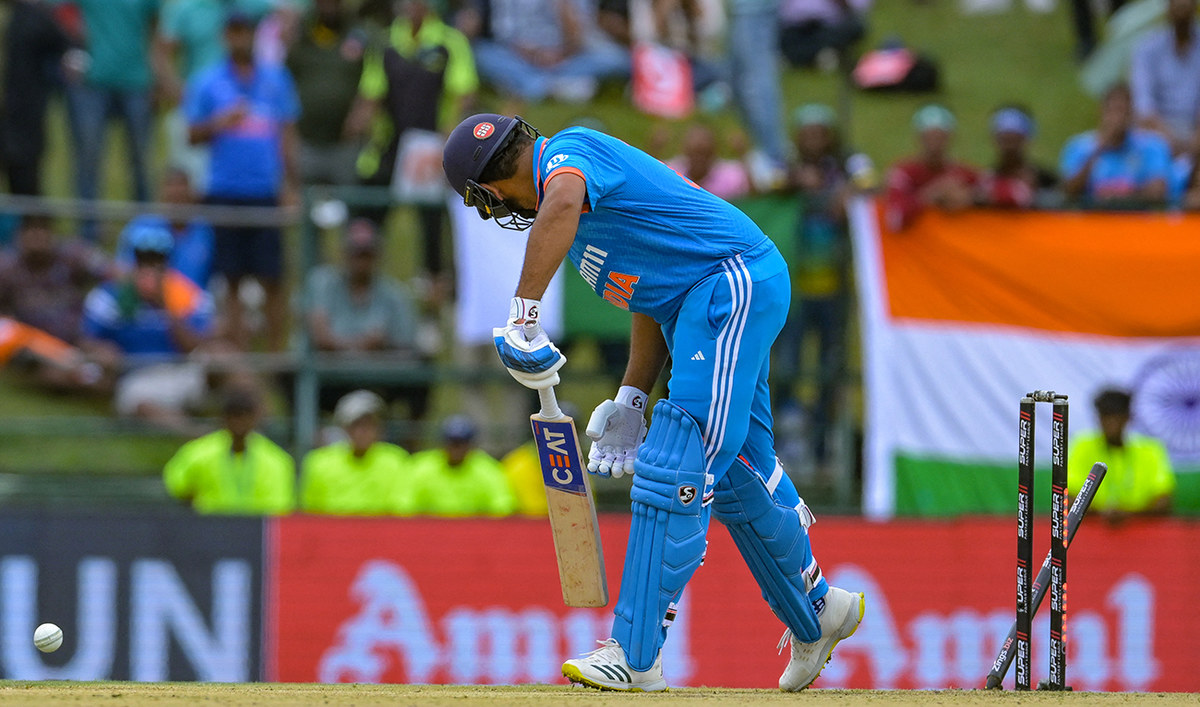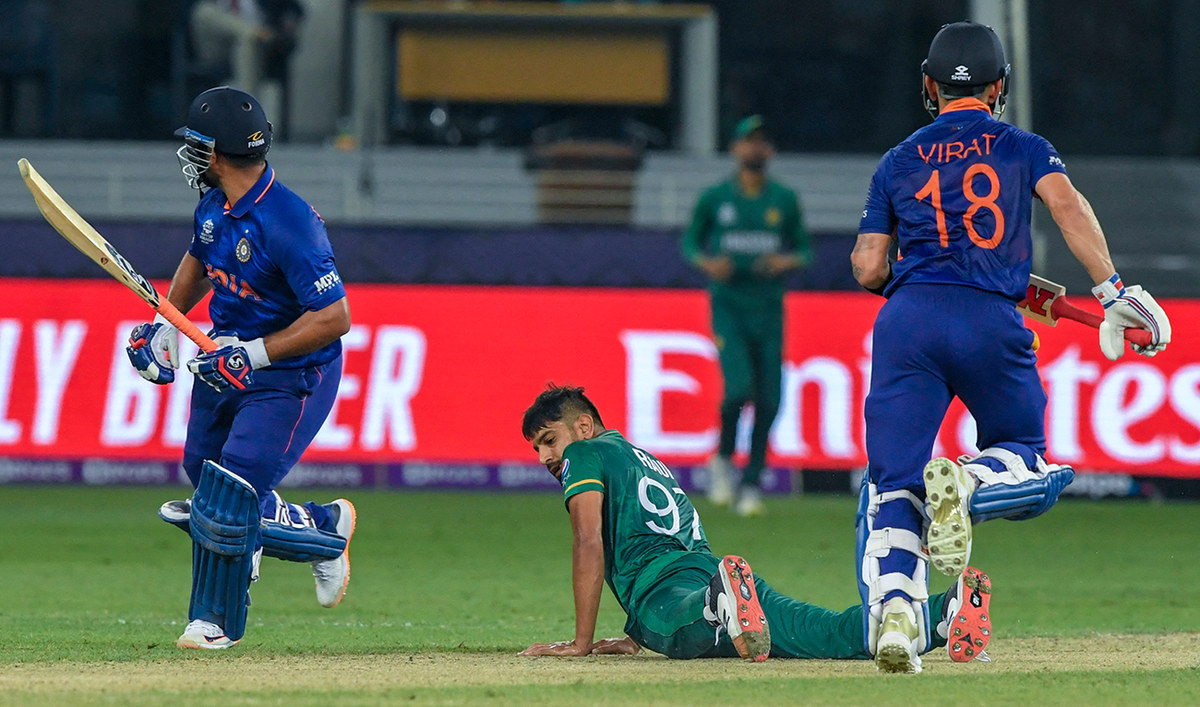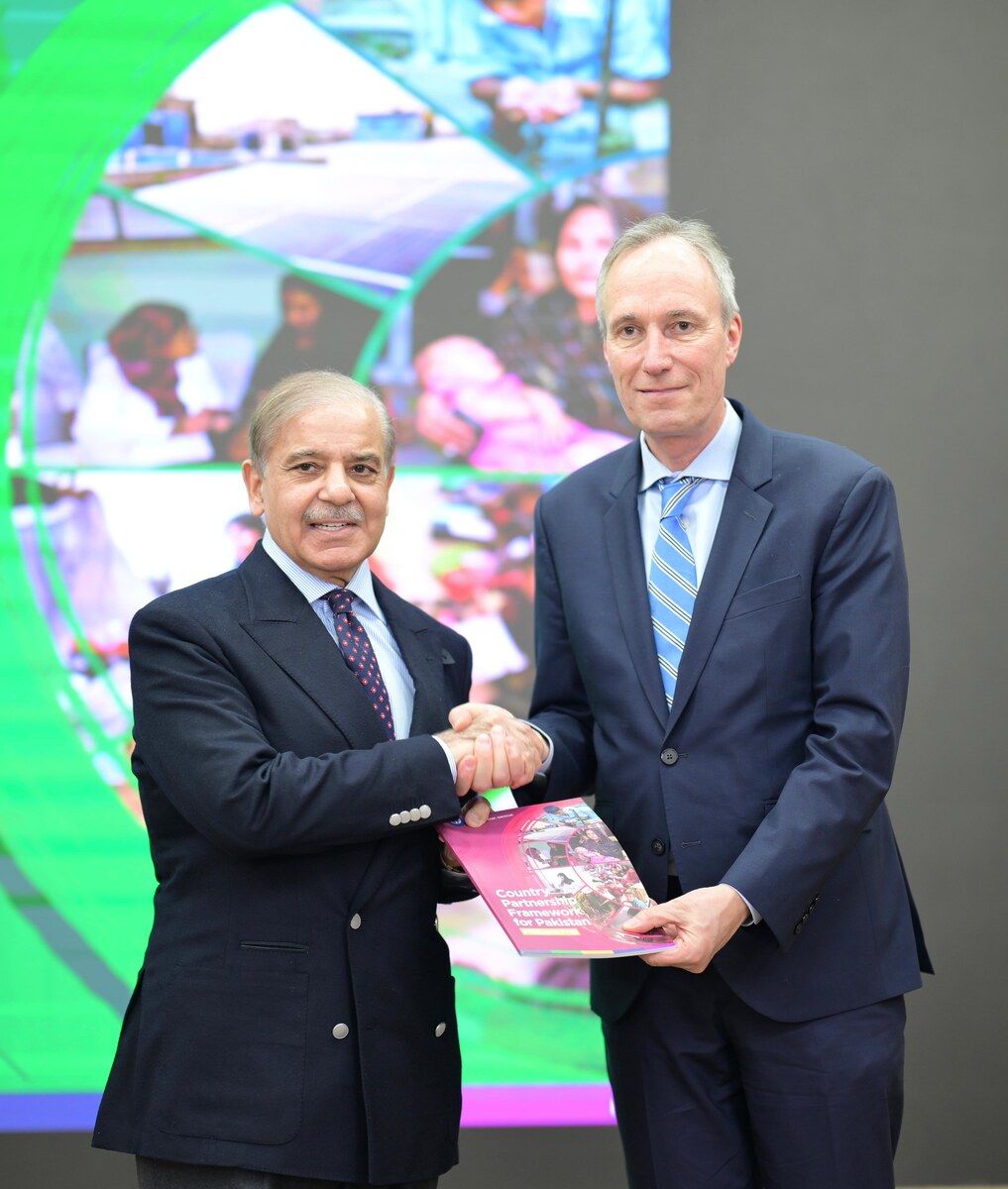AHMEDABAD, India: Arch-rivals India and Pakistan meet in a blockbuster clash at the World Cup on Saturday.
AFP Sport takes a look at four key battles that could decide the eagerly-awaited contest at the world’s biggest cricket stadium in Ahmedabad.
India skipper Rohit Sharma has struggled against Shaheen Shah Afridi’s left-arm pace in the few outings the two teams have had in recent times.
Shaheen rattled Rohit’s off stump in their first Asia Cup match in Pallekele last month when the opener’s lack of footwork saw him bowled for 11.

India's captain Rohit Sharma is clean bowled by Pakistan's Shaheen Shah Afridi (not pictured) during the Asia Cup 2023 one-day international (ODI) cricket match between India and Pakistan at the Pallekele International Cricket Stadium in Kandy on September 2, 2023. (AFP)
The duel began at the T20 World Cup in 2021 when Shaheen trapped Rohit lbw for a duck in the first over in Dubai with his pace and swing.
But Rohit came back prepared when the rivals next met in Colombo and remained cautious against the quick despite hitting a six off his first over.
The stakes were high when Virat Kohli came up against Haris Rauf in a challenging chase at the T20 World Cup in Melbourne last year.
India needed 31 off the last 18 balls while chasing 160 when Kohli held his nerve to smash Rauf for two sixes to bring the house down at a packed MCG.

Pakistan's Haris Rauf (C) dives to field the ball as India's captain Virat Kohli (R) and his teammate Rishabh Pant take a run during the ICC men’s Twenty20 World Cup cricket match between India and Pakistan at the Dubai International Cricket Stadium in Dubai on October 24, 2021. (AFP)
The first was a length ball which Kohli dispatched straight down the ground and he flicked the next to over fine-leg en route to victory.
Kohli later said the sixes were “instinctive,” but it began a great battle with the Pakistan quick which awaits another showdown in Ahmedabad.
Jasprit Bumrah experienced the Pakistan captain’s ability at the 2021 T20 World Cup in the United Arab Emirates.
Azam took on the Indian attack including Bumrah, a yorker king, with ease as he and Mohammad Rizwan steered the team to a 10-wicket victory in Dubai.

Pakistan's Babar Azam leaves the field after being dismissed during the ICC men's Twenty20 World Cup 2022 cricket match between India and Pakistan at Melbourne Cricket Ground (MCG) in Melbourne on October 23, 2022. (AFP/File)
But two years later Bumrah and company seemed to have learnt their lessons when they bowled out Pakistan for 128 in a crushing 228-run win in an Asia Cup Super Four clash.
Bumrah beat the bat of Azam on a few occasions in Colombo before Hardik Pandya got the prized wicket.
Iftikhar Ahmed is a middle-order batsman who can play anchor or go after the bowling with equal ease but at the Asia Cup last month, India spinner Kuldeep Yadav cut short the batsman’s knock, taking a smart catch off his own bowling.

India's Kuldeep Yadav (L) and Shubman Gill celebrates after taking the wicket of Pakistan's Iftikhar Ahmed (not pictured) during the Asia Cup 2023 super four one-day international (ODI) cricket match between India and Pakistan at the R. Premadasa Stadium in Colombo on September 11, 2023. (AFP/File)
Kuldeep, a left-arm wrist spinner, claimed 5-25 in that game as India claimed a 228-run win.
Iftikhar’s task on Saturday will be to tackle the spinners in the middle overs and also accelerate the scoring.

















